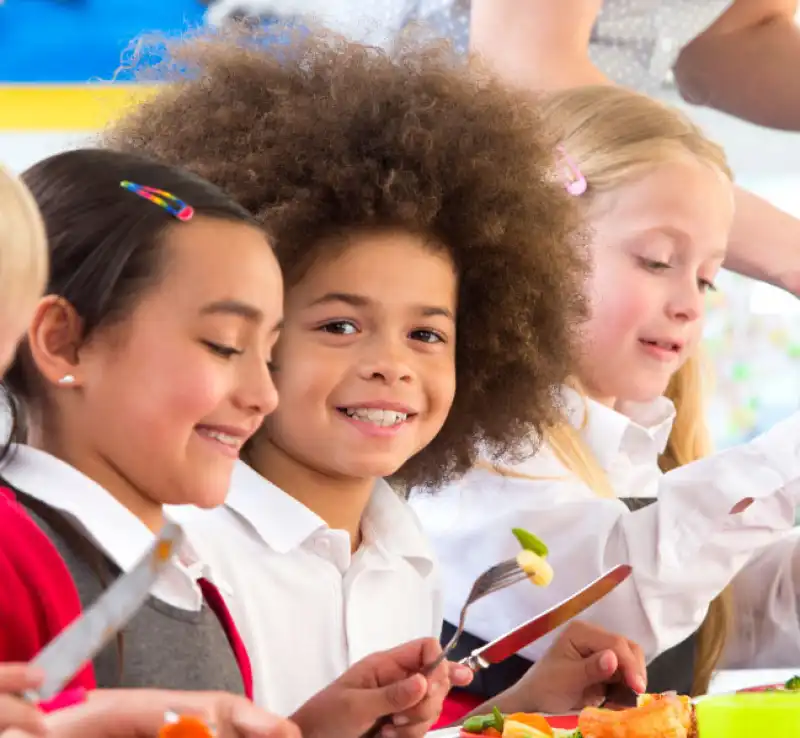
Transitioning to School Dinners
20th July 2023
Sending your children to school is SUCH a big step and gives you lots of things to think about, act on and get organised for. One thing you might not have thought about is getting them prepped for mealtimes and eating in a school environment. If your little one has been to a nursery or childminder then they might be quite used to this, eating different foods and flavours and in a different environment to their home…but if they haven’t been to nursery they may need a little help adjusting to eating school meals or school dinners.
Some children may need confidence and skill building as at school they will likely have less support with eating than at nursery, others might be unfamiliar with the kinds of foods on offer, and we know children tend to accept foods more willingly if they are familiar with them.
In most schools children are able to either have lunchboxes or school dinners (or both) and school dinners are actually free until children get to Year 3, so in my experience, many families want to choose this option. I certainly did. If you’re keen on offering school packed lunches, check out my blog on this for some ideas and tips on what to include that aren’t just sandwiches…
Below, I’ve shared some tips to help pre-schoolers with the transition to school meals:
Make sure you check out the menus BEFORE they head to school
Having a read through the menus so you know what to expect can be a good place to start. Even talking your child through the menus so they can see the kind of foods on offer, the variety and the choice available can build a little confidence. If you can, you could cook some of the meals at home yourself – they might not be exactly the same, but having versions of them and getting them used to the types of meals available might help them be a little more accepting at school. I know this is a big task, but if you’re worried about them eating the school meals it may just help!
Try to encourage as much variety as possible at home
The more variety they are familiar with eating at home the more variety they’ll likely accept and enjoy elsewhere too. So, if they’ve seen and eaten green beans, cauliflower, mashed potato at home, they may be more willing to accept these options at school too. Keep offering plenty of variety as much as you can, even when they go through the typical periods of fussy eating that are so prevalent in toddlers.
Build some confidence with cutlery
Helping kids to learn to feed themselves efficiently can be challenging…but giving them plenty of time and practise to build and hone the skills of self-feeding may really help them to be more efficient eaters at school and to need a lot less help and support with their food. Ideally by school age children will be able to eat using knives and forks as well as spoons and drink easily from an open cup too. If you’re unsure or worried about your little one’s self-feeding skills, check out my blog on cutlery use for babies and toddlers.
Eat out and about
If you can try and get your little one eating out and about, with others and in social environments as it’ll set them up for busier school canteens where they’ll be eating with their classmates. I love talking about the social aspect of eating anyway, and talk about it in my work a lot, but it really can help to build their confidence at school too. Lots of parents whose children are at nursery say that it really helps them to eat better and eat a little more when they have lots of mini role models around them, so give this a go and it might help their confidence with school dinners too.
…And a few more thoughts from me:
Try to avoid “pressures” to eat at home as this can have a real knock-on effect about how they feel at mealtimes and about certain foods.
Take time and go easy on them. Learning about foods, accepting a variety and building up skills around self-feeding and using cutlery all takes time.
Remember that what happens at home (and the majority of the time) is what matters the most, so if you don’t like the school food or the environment they eat in, remember it’s not forever and it might change in time too. Talk directly to the school if you’re ever worried – having open communication can really help!
Charlotte Stirling-Reed
Back to Latest News